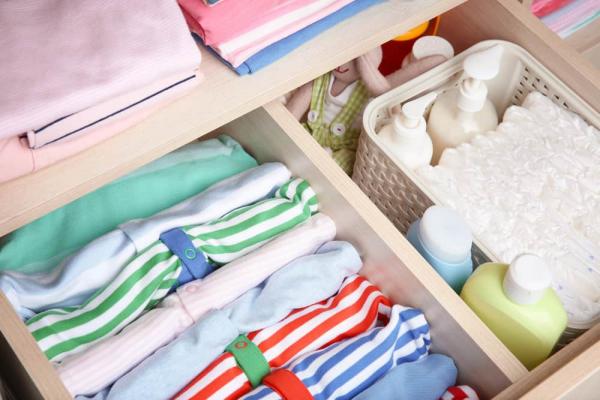
Family life seems inextricably associated with household clutter. There are toys, electronic devices, school projects and piles of washing. Getting rid of these items may seem like an impossible task. But there are a number of reasons decluttering can improve family life:
Sleep comes easier
A sleep study revealed that people who go to bed in messy, cluttered rooms are more likely to experience sleep problems. This can lead to sleep deprivation, which whatever a person's age, can a have a severe effect on mood, cognitive ability and even weight.
Decluttering bedrooms is, therefore, a no-brainer. There are lots of intelligent, space-saving storage solutions you can incorporate into bedrooms. They utilize the space under beds and maximise cupboard space so things can be put away neatly and not crammed into wardrobes or drawers.
It can help children learn
Back in the 1990s, two German public health workers, Elke Schubert and Rainer Strick, conducted an experiment in a nursery. They took away all of the children's toys for three months and found that the children soon readjusted their play, becoming more interactive and creative as a result. Subsequent studies have also suggested that children with too many toys lack concentration - they struggle to focus and learn from one toy, instead of spending their time superficially playing with all of them.
So while parents may feel cruel cutting back on their children's toys, there's evidence to suggest they may be doing them a favor. Some parents choose to rotate toys, storing some in an attic or garage and limiting the number available at any given time. And for toy collections in need of a more drastic approach, charity shops are always grateful for any donations they receive.
It makes the daily routine less stressful
Getting out of the house in the morning with children can be tricky. As well as the breakfasts, the teeth brushing and the getting dressed, there are endless items to locate - school backpacks, shoes, a clean pair of socks, the car keys. In a decluttered home, finding all of these objects is made much more accessible.
Specific items should have a designated place. A bowl of keys, a rack for shoes and a hook for school bags and coats can save many a minute of stressful searching. But, more generally, having less visual clutter to search through also helps.
Everybody works more productively
Whether it's kids doing homework, parents managing the monthly accounts or even parents running a business from home, a tidy workspace can work wonders for productivity. Research conducted at Princeton University found that visual clutter limits a person's ability to focus on the task at hand.
When decluttering your home, start with a designated workspace or a filing cabinet. This way paperwork doesn't invade the entire house. Other options include archiving documents you won't need for some time. They could go into storage at home or, for families who don't have the room, cheap storage space within the local community.
Everyone can focus on the essentials
Living minimally has its benefits. When people are less concerned with the material things around them, they're more concerned with each other. For starters, less clutter and fewer belongings mean less time spent tidying. And with fewer distractions, people (as the children did in the German nursery study) seek out other entertainment. This could all lead to more time spent together as a family, which must be a good thing in anyone's book.
Find storage space at home or elsewhere, donate items to charity, sell them online or give them away to friends. A decluttered home can have a really positive effect on family life.

